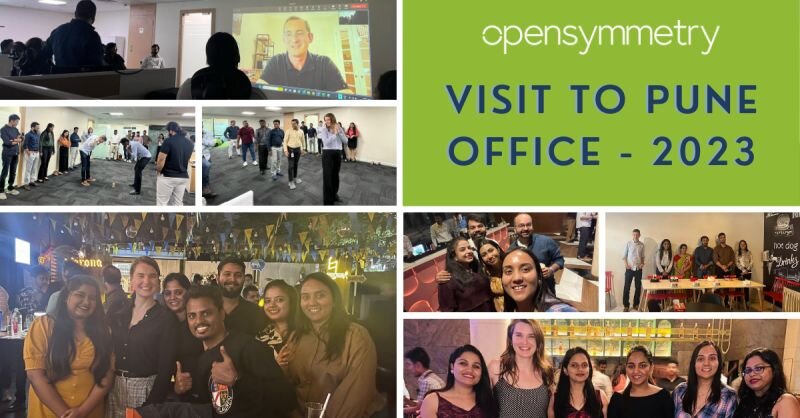Effects of Revenue Performance Management on Enterprise vs Commercial Growth
Revenue performance management is revolutionizing the way businesses achieve sustainable growth in a competitive marketplace. With companies navigating the complexities of SMB vs enterprise size demands, optimizing performance has never been more critical. Tools like the Varicent API are reshaping sales strategies, delivering actionable insights to improve operational efficiency and elevate outcomes. In this article, we delve into how revenue performance management, powered by tools like Varicent, is influencing enterprise and commercial success, while addressing key trends like sales performance, UAT training, and customized solutions from Varicent developers.
The Role of Revenue Performance Management in Modern Businesses
Revenue performance management (RPM) is more than just a buzzword—it’s a systematic approach to measuring and enhancing sales efficiency. Whether your organization falls under the SMB or enterprise size category, RPM strategies provide the clarity needed to make data-driven decisions. Companies often struggle to bridge the gap between enterprise vs commercial needs, but with the integration of advanced platforms like the Varicent tool, they can better align sales processes with overall goals.
Varicent ICM developers are playing an instrumental role in ensuring seamless implementation of RPM strategies. These developers specialize in customizing the platform to suit unique business needs, whether you’re a global enterprise or a growing commercial business. By leveraging insights gained through RPM, decision-makers can refine their sales performance while preparing for scalable growth.
Sales Performance: The Engine of Revenue Growth
Sales performance remains the cornerstone of any successful revenue strategy. Companies are increasingly relying on tools like Varicent to analyze, predict, and enhance sales outcomes. A Varicent developer, with expertise in customizing the platform, ensures that sales teams have the data and tools they need to excel.
The Varicent API serves as a vital connector, integrating with existing systems to provide a unified view of sales operations. With this integration, businesses can track progress, identify bottlenecks, and implement solutions that improve both individual and team sales performance. Moreover, the insights gained are invaluable during UAT training, where sales teams can learn to adapt to new technologies without disrupting their productivity.
SMB vs Enterprise Size : Tailoring the Approach
One of the most pressing challenges in revenue performance management is addressing the distinct needs of SMBs versus enterprise-size companies. Enterprises typically have larger, more complex operations that demand robust solutions. Commercial-sized businesses, on the other hand, require flexibility and agility to respond to market demands quickly.
Tools like the Varicent tool are designed to cater to these varying demands, offering scalable solutions that grow with the organization. For example, while enterprises benefit from detailed reporting and analytics powered by the Varicent API, SMBs might prioritize cost-effective implementations that focus on immediate ROI.
Robert Blohm, a key thought leader in the industry, emphasizes the importance of understanding these distinctions to create solutions that drive success in both market segments. His insights underscore the significance of adopting a tailored approach when deploying revenue performance management strategies.
The Role of Varicent Developers and ICM Experts
Implementing a platform like Varicent requires expertise, which is why Varicent developers and ICM experts are in high demand. A Varicent ICM developer focuses on configuring the system to meet incentive compensation management needs, ensuring accuracy and transparency in payouts.
When it comes to larger-scale projects, a Varicent developer can customize the platform to align with broader organizational goals, such as improving cross-department collaboration or streamlining sales incentives. By tailoring the solution to specific business needs, these experts help organizations unlock the full potential of revenue performance management.
Training and Adoption: The Importance of UAT
User acceptance testing (UAT) training is a crucial phase in the deployment of tools like Varicent. It ensures that end-users understand how to leverage the platform effectively, minimizing disruptions during the transition phase. This training is especially important for sales teams, who rely heavily on accurate data and seamless functionality to drive performance.
Through UAT training, employees become comfortable with new tools, enabling quicker adoption and better results. By working with skilled Varicent ICM developers, businesses can ensure that their teams are prepared to use the platform to its fullest potential.
Unlocking Growth Through Strategic Investments
Revenue performance management is a game-changer for organizations looking to stay ahead in an increasingly competitive environment. With platforms like Varicent and the expertise of professionals like Robert Blohm, businesses can navigate the complexities of SMB vs enterprise size challenges.
Whether you’re focused on improving sales performance or exploring the benefits of enterprise vs commercial strategies, adopting RPM solutions will provide the tools needed to succeed. By investing in advanced technologies and prioritizing training, companies can unlock new opportunities and ensure long-term growth.
Conclusion
revenue performance management is reshaping how businesses operate, offering powerful solutions to enhance sales outcomes and streamline operations. With tools like Varicent, supported by expert developers, businesses can confidently address market demands and drive success, regardless of their size or industry.
